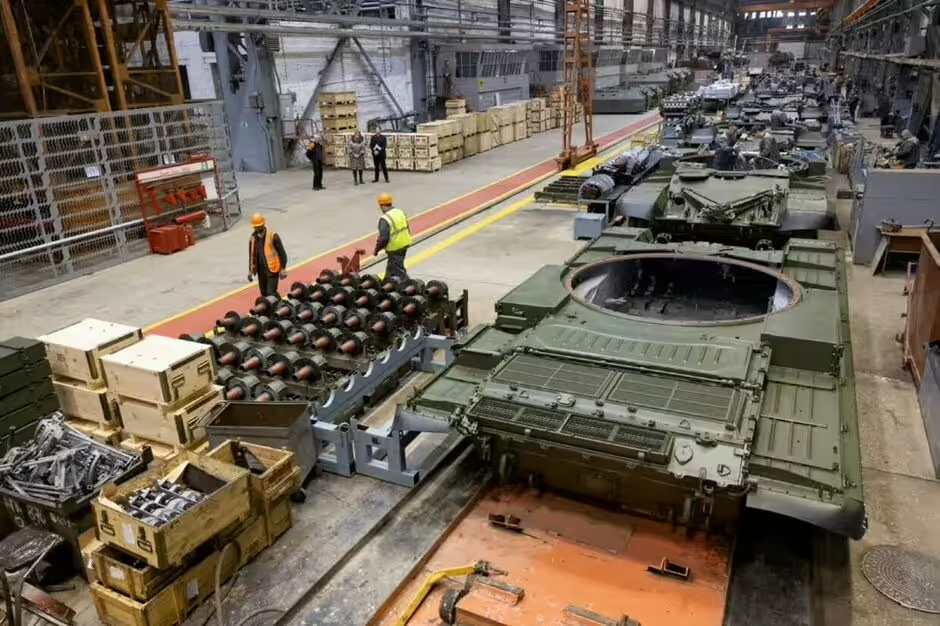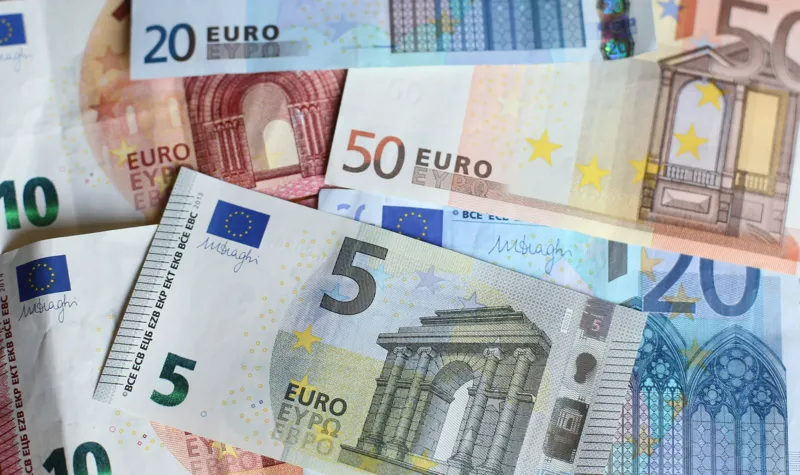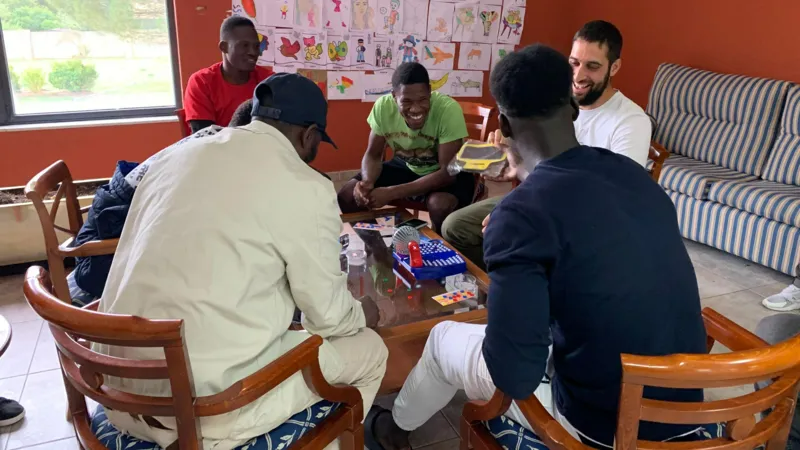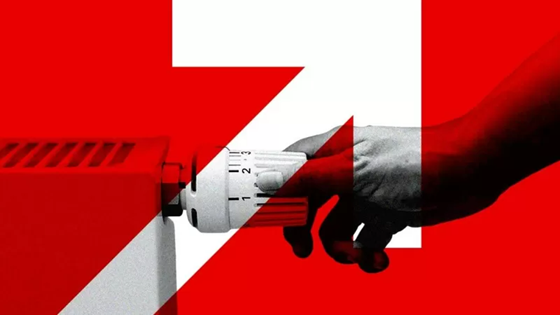The ruble is in freefall and food inflation is so high that butter is now “as valuable as gold” – but Russia’s war economy is offering Putin security and could stand in the way of a meaningful peace deal.
Russia has become so reliant on its war economy that Vladimir Putin is unlikely to accept a full-scale peace deal in Ukraine, experts warned last night.
It follows the announcement last week of a record £100bn defence budget for next year -worth around 40% of Russia’s total economy and an increase of more than £40bn since 2023.
This means that more will be spent on Russia’s military and security forces than on health care, education, and social services combined.
“Russia simply cannot afford for this war to end unless it wants to be a vassal of China – the consquences to its economy would be catastrophic ,” said economist Dr Renaud Foucart, of Lancaster University last night.
Regional expert Prof Mark Galeotti added: “We should expect any deal brokered by Presidents Trump and Zelensky with Putin to amount to little more than a ceasefire. Putin will use this time to continue to crank up his war machine because he needs to build up his devastated armed forces.”
Putin has cited his transition to a wartime economy as a sanction-busting success story, with arms factories across the country working non-stop to support Russia’s war machine in Ukraine.
In reality, Russia’s economy is fragile, too reliant on volatile energy exports and at dire risk of overheating.
Russia’s currency, the ruble, continued its plummet last week, dropping to 110 against the US dollar, its lowest level since the start of the war in Ukraine.
Its initial collapse was caused by the flight of capital from the country following the February 2022 invasion.
Russia’s central bank responded by ordering all exports to convert 80% of their foreign currency to roubles and limiting individual foreign currency withdrawals to just £7,900.
Russia also found ways to bypass weak sanctions and take advantage of high energy prices in its exports to China and India.
However, this was offset last year by the tightening of sanctions and a decision by G7 nations to cap the price of Russian oil, limiting foreign currency flows into the country.
Now, new US sanctions have added to Moscow’s worries by targeting major lender Gazprombank for the first time, as well as 50 small- to medium-sized Russian banks which have been cut off from doing business with the US and its allies.
The slide of the ruble will once again persuade people to move any remaining capital out of Russia and force the central bank to use its reserves while increasing the cost of imports—increases that can’t realistically be passed on to Russia’s struggling consumers.
Already, Russia’s annual rate of inflation has hit 8.4% – twice the target- while moves by the central bank to increase interest rates to 21% will only slow down the economy further.
Spiralling food inflation has already led to a spate of food robberies. Egg thefts last year have given way to butter thefts this year, with the price of butter – £1.50p per 200 grammes (a 30% hike from 12 month ago) “now like gold”, according to the owner of a store in Yekaterinburg who was targeted.
Russia’s nominal GDP sits at just £1.6 trillion, compared with the US GDP of £23 trillion.


Russia was already dedicating 10% of that GDP on military spending last year. The new budget will see this increase – and it bodes badly for the long-term economic prospects.
Ammunition production, military equipment, pay for soldiers, wages, and compensation delivered to the families of wounded or dead troops all contribute to this amount -meaning Russia’s wart meme economy is paying the wages of tens of thousands of people inside the country.
“Russia’s war economy means that every embryo of existing industry in Russia that was not for the war and that was not for oil and gas has been steered towards war production,” said Dr Foucart, last night.
“Food inflation is really what matters for ordinary people, so this is the moment of overheating. There was a plan for several years of subsidising mortgages. This is gone because it has created a bubble in real estate.
“Russia would have to reinvent itself from a position of big weakness.”
Putin is placing a lot of hope in the BRICS group of nations – Brazil, Russia, India, China, South Africa, Iran, Egypt, Ethiopia, and the United Arab Emirates – developing their own currency to bypass the dollar.
This has already proved a challenging prospect, and we must now contend with President-elect Trump’s vow to impose 100% tariffs on BRICS exports into the US should this happen.
“In any case, this doesn’t work for promised secondary sanctions – and Chinese banks are super worried about being hit by secondary sanctions. This will affect Russia energy exports to China, a main source of revenue,“ said Dr Foucart.
“So, whichever way you look at it, I think it’s very hard for Putin to end the war because it means becoming more of a vassal state of China. That’s the only way Russia will be able to exist.”
The end of the war will see real incomes drop for all but Russia’s elite families just as 300,000 battle-hardened veterans – many released from long prison terms to “volunteer” for the front – return home.
Putin’s only levers to deal with the ensuing social instability are a dwindling national welfare fund against which promises of pension reform and higher salaries have already been made, as well as a bolstered police force.
“Something we know from the history of the two Chechen Wars is that it’s not easy to reintegrate people who have been at war into Russian society,” said Dr Foucart.





